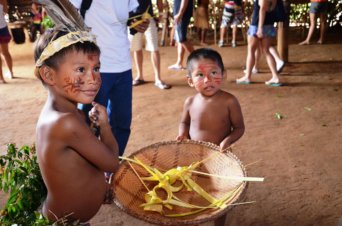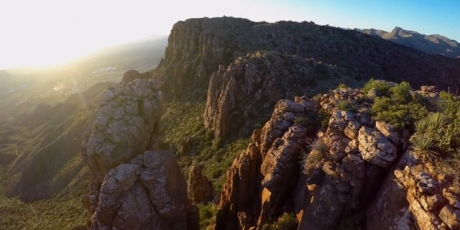- About
- Topics
- Picks
- Audio
- Story
- In-Depth
- Opinion
- News
- Donate
- Signup for our newsletterOur Editors' Best Picks.Send
Read, Debate: Engage.
| topic: | Indigenous people |
|---|---|
| located: | Brazil |
| editor: | Ellen Nemitz |
Indigenous people are under severe threat since the beginning of Jair Bolsonaro’s mandate, in 2019. He has never concealed his position against land demarcation and is in favour of exploring these territories for economic activities. However, since the beginning of February, the ideas started to become true.
The National Congress has received a bill that would authorise mining, energy generation and other economic activities in indigenous lands – and, during a ceremony, Bolsonaro said he wanted to "restrain [the environmentalists] in the Amazon since they like the environment so much". Deputies' opinions are divided and the leader of Congress, Mr Rodrigo Maia, has flagged that he is not going to put the bill to the vote. However, there are still reasons to worry.
Even though according to the bill there will have to be previous studies about consequences of exploitation and to respect “culture and tradition” of impacted communities, the Coalition of the Indigenous Peoples of Brazil (APIB) published a rejection motion against the project. The document declares that the "announcement made up with false good intentions and rhetoric that induce the co-optation and division of the peoples, distorting the real sense of autonomy, to also authorise the invasion of indigenous territories through other ventures such as extensive agriculture, livestock production and other predatory ventures".
These representative indigenous' leaders consider that the real intention is "to serve the economic interests that boosted his candidacy and that support his government”. They also mention that indigenous people were victims of 500 years of colonisation and massacre and call for help to prevent the "irreversible impacts particularly on isolated and recently contacted indigenous peoples” and to "join us in this battle for life and well being not only of indigenous peoples but of all humanity and the planet”.
The 107 registered isolated or recently contacted indigenous communities are set to be victims of a modern process of colonisation. That is because an anthropologist who is also an evangelical pastor was nominated by the National Indigenous' Foundation to coordinate policies for these people. Ricardo Lopes Dias has worked for Missão Novas Tribos do Brasil (Brazil New Tribes’ Mission, in English), an organisation dedicated since 1950 to evangelise indigenous people, something comparable to what happened in the 15th century, when the Portuguese and Spanish expeditions converted – or tried to – native indigenous to Christianity. This modern colonisation has also been responsible for decimation of tribes by spreading epidemics.
The Intercept Brazil accessed an audio in which the evangelical anthropologist Edward Mantoanelli Luz declares that converting indigenous people to Christianity is exactly the goal behind the nomination. The same file is being used by the Public Prosecutor’s Office in order to juridically reverse the decision. In an interview with BBC Brazil, Mantoanelli Luz defines Lopes Dias as perfect to the position due to his educational background.
Besides official entities and indigenous communities’ reactions, the decision was also criticised by religious organisations, such as the National Council of Christian Churches in Brazil and the Missionary Indigenous Council (linked to the National Conference of Catholic Bishops of Brazil). The first one's official note highlights that indigenous peoples must be respected in their own religiosity and public policies are meant to be secular. Mentioning the constitutional right of autonomy to isolated indigenous communities, it says: “The colonialist logic regarding indigenous people must be urgently overcome. As a nation, we have an immeasurable historic debt to these people. It is not up to us, white, Christian capitalists, decide their fate”.
Image: Katiabraga / Pixabay

